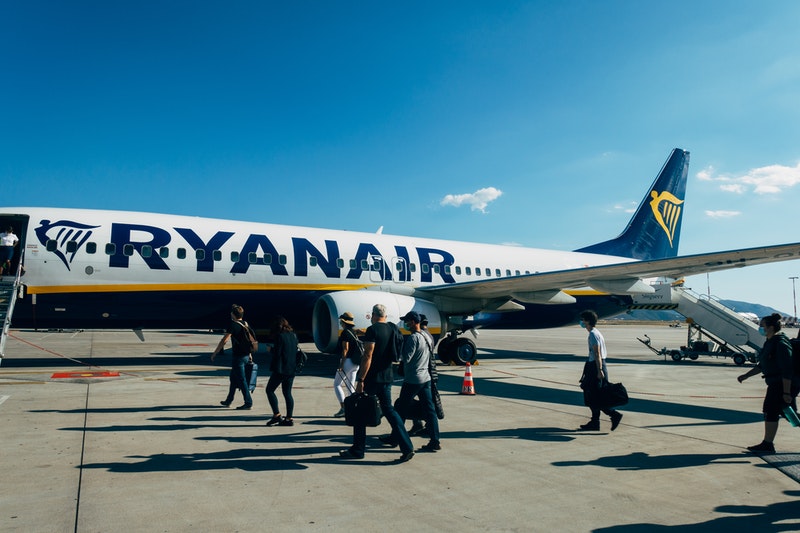How to Plan a European City Break

Visiting a European city offers the perfect opportunity to immerse yourself in a captivating destination without breaking the bank or using too much precious annual leave.
The logistics of planning the perfect trip can be a daunting task. But with careful planning, even a long weekend can provide a refreshing change of scenery.
Below, we’ll walk you through the essential steps of organising the perfect break, ensuring you make the most of your time and money.
Make a Budget
Before diving into the exciting details of your holiday, it’s crucial you establish a realistic budget. This will give you a realistic idea of what you can afford and help you choose between different destinations.
After you’ve chosen where to go, you can further refine your budget by researching average prices in that place and putting away some money to cover the different aspects of the trip – including transportation, accommodation, food, attractions and a contingency fund for unexpected expenses.
Choose Your Destination
Selecting the right location is key to a successful holiday, so consider your interests and budget. If you’re strapped for cash, cities in Eastern Europe such as Prague, Budapest or Krakow are great options for a cheap city break, while coastal cities are ideal for those seeking sun and sea.
It’s also important to think about the best time to visit when weighing up different destinations. Some cities are more enjoyable in certain seasons – Venice, for instance, can be overwhelmingly crowded in summer but magical in winter.
Book Your Flights
When it comes to booking flights, flexibility is key. Use flight comparison websites like Skyscanner to compare prices across different dates and airlines, then book directly with airlines for better customer service.
Often, flying midweek or at less sociable hours can result in significant savings. If you can be flexible with your travel dates, you might find substantial price differences even within the same week. Travelling during shoulder season could also give you access to lower prices if you’re willing to sacrifice the best weather.
Considering alternative airports can help you save as well, as some cities have multiple airports and flying into a secondary airport might be cheaper – even when factoring in the additional transport costs to the centre.
Pack the Essentials
Packing light is crucial for a city trip, especially if you’re using cheaper airlines with strict baggage limits. Check the weather forecast and pack versatile clothing that can be layered. Don’t forget comfortable walking shoes, as you’ll likely be covering a lot of ground on foot.
Essential items include your passport, travel insurance documents, any necessary medications and a universal power adapter. It’s also worth bringing a portable charger for your phone, as you’ll probably be using it frequently for navigation and photos.
Create an Itinerary
While spontaneity has its charms, a loose itinerary can help you make the most of your limited time. Research the main attractions in your chosen location and note their opening times, as well as any special requirements such as pre-booking.
Looking for city passes can get you discounted entry to multiple attractions, while grouping activities by location can help you minimise travel time. Many cities also offer free walking tours, which can be an excellent way to orient yourself and learn about the local history and culture without spending a penny.
But don’t forget to leave yourself some freedom to wander and be spontaneous. It’s smart to use Google Maps to bookmark any restaurants and cafes that don’t make your must-visit list. This can be incredibly helpful when you’re out exploring and need to find a nearby spot for lunch or a quick coffee.
Select Your Accommodation
Choosing centrally located accommodation will cut down the time it takes for you to travel back and forth to attractions and shops, helping you maximise your opportunities for exploration. While hotels are a popular choice, don’t overlook alternatives such as apartments or guesthouses, which can offer more space and a local feel.
Read reviews carefully, paying attention to comments about cleanliness, noise levels and location. Bear in mind that the cheapest option isn’t always the best value – you also need to think about factors like included breakfasts or free Wi-Fi, which can save you money overall.
Before you book a place to stay, research the best way to get from the airport to your accommodation. Getting a holiday transfer is a convenient option and planning this out in advance can save you time and reduce your stress upon arrival.
Mastering the Art of the City Break
With careful planning and a little flexibility, a European city holiday can be an affordable and enriching experience. And the steps we’ve outlined above should go a long way towards helping you create an unforgettable holiday.
But don’t worry if you’re still finding the planning process a little challenging – mastering this process takes more than just one go. It’s a skill that you can hone over years, one incredible city at a time.





